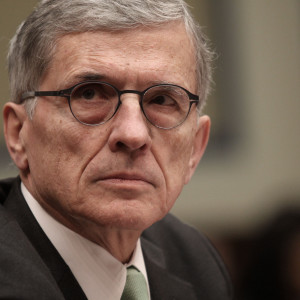Federal Communications Chairman Tom Wheeler is refusing a request by dozens of lawmakers from both sides of the aisle in Congress to pause the agency’s proposal to open cable provider content to third-party set-top boxes until their impact can be studied.
A growing number of lawmakers on both sides of the aisle and in both houses of Congress have taken issue with the proposal, including members of the Congressional Black, Hispanic and LGBT Caucuses. Many have voiced concerns about the proposal’s potential to marginalize diverse programming.
Rep. Juan Vargas, a Democrat representing California’s 51st District, is one of those concerned. He and others sent letters to Wheeler in April saying it was “essential for independent, peer-reviewed studies to be completed … including the impact of the proposed rules on diversity of programming, independent and minority television programming, content protection and consumer privacy.”
In reply letters posted online by the agency this week, Wheeler appreciated legislators’ concerns, but said the current market already puts diverse programmers at a disadvantage, and that his proposal would only seek to right the ship.
“Thus far, our record is replete with comments from minority programmers who have been locked out from carriage on traditional cable networks,” Wheeler wrote. “For the sake of these entrepreneurs and the audiences they hope to reach, we must move forward.”
In the present market, in which consumers rent set-top boxes from pay-TV providers like Comcast or DirecTV for a monthly fee, popular packages typically offer between 200 to 500 channels. According to Wheeler, that includes only two Hispanic and four African-American owned networks.
“While a channel like ESPN is paid over $7.00 per month per subscriber by [multichannel video programming distributors], minority channels receive pennies,” he wrote. “What’s more, minority networks are often placed on premium tiers requiring an additional payment from the consumer which also limits potential advertising revenues by limiting potential audience reach.”
Wheeler said the FCC would move forward with the proposal, and that the 104,000 comments the agency has received during the comment and reply periods — described by the chairman as the most “thorough examination of this issue ever undertaken or
contemplated” — will serve as a robust record of input from stakeholders and consumers on how the agency should proceed.
“Our proposal would provide minority and independent programmers with an equal opportunity to reach their audiences,” Wheeler’s letter reads. “The proposal would facilitate competition in interfaces, search functions, and integration of programming sources, all of which would provide programmers with a greater ability to find audiences and consumers with a greater ability to access independent and minority programming.”
The chairman dismissed concerns raised by executives of networks including BET, Fuse, VME and TV One that the proposal could force the few successful minority programmers to compete, while giving potential third-party navigation device makers like Google the ability to manipulate their content, circumvent advertising and squeeze them out of a more demand-based video market.
During a press conference in May, New York Rep. Yvette Clarke said she was “not convinced” Google — the eager third-party entrant often cited by Wheeler — would do any better job at promoting diverse content than Silicon Valley does with regard to hiring minorities.
“For those few independent and minority-owned programmers who already have carriage on the traditional pay-TV system, nothing in the commission’s proposal disrupts existing contractual relationships between programmers and MVPDs,” Wheeler said.
To justify the proposal the FCC has only cited a study by Sens. Ed Markey of Massachusetts and Richard Blumenthal of Connecticut, which found the country’s biggest cable companies charge the average U.S. household $231 annually in set-top box rental fees, pulling in almost $20 billion every year for providers.
Others in Congress, the industry and at the commission itself have questioned Wheeler on several facets of the proposal presently unaddressed by the agency, including its cybersecurity considerations, privacy protections, and price if pay-TV providers and electronics manufacturers are unable to consent on video format.
Republican FCC Commissioner Ajit Pai warned in February a failure to compromise could mean subscribers would have to pay for two boxes instead of one, at a time when the app-based economy should be steering consumers away from hardware altogether.
“Our goal should not be to unlock the box; it should be to eliminate the box,” Pai said.

